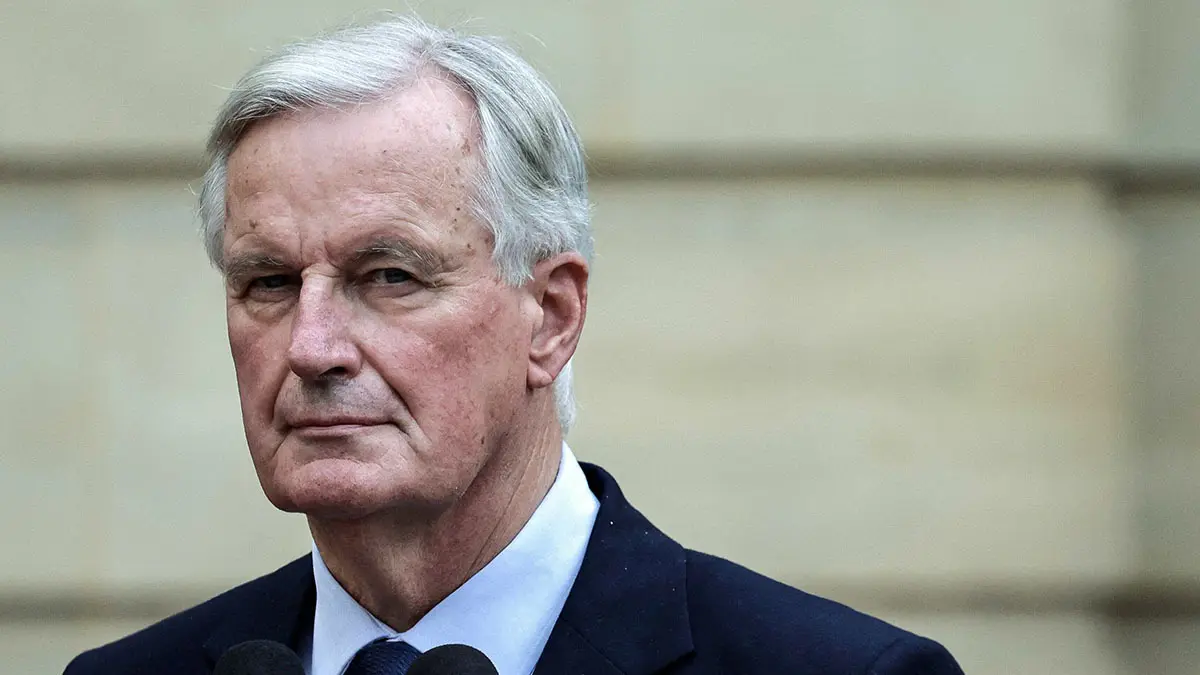A country threatened by a sword of Damocles

The reason for this resurgence of Gaullist thought is the comparison of the current state of France with that of the country during the convulsive Fourth Republic (1946-1958). At that time, after the undoubted merit of having turned a France previously surrendered to Germany by Marshal Petain into a victorious power, the turmoil of internal party struggles had brought the nation to the brink of collapse. De Gaulle was called upon by acclamation to put an end to the turmoil, and demanded a new constitution to suit him, so that he could adopt the draconian measures that were required. Thus he decided on the brutal economic reform that brought in the then so-called strong franc; a ruthless watch on spending and, of course, a no less severe increase in taxes, with which he would finance France's mammoth transformation from an eminently agricultural and rural country into one of the world's most technologically advanced.
Michel Barnier, the current French prime minister, does not have the immense powers granted to de Gaulle, starting with the fact that he is one step below President Emmanuel Macron, who is greatly diminished in power after the electoral setbacks suffered by the parties that support him. But Barnier is nonetheless the person who embodies the mission of straightening out a France that is distrusted by the stock markets, with a public deficit of more than 6 %, a debt of more than three trillion euros and a risk premium higher today than that of Spain or Portugal, for example. All this has led Barnier, when presenting the budget, to describe the situation as that of ‘a country threatened by a sword of Damocles’.
Macron's spending ‘party’ during the mandate and a half that he has already had in the Elysée Palace is already unbearable, so that Barnier, while twisting the truth by saying that ‘he does not impose austerity’, has drawn up accounts in which recovering international credit means finding 60,000 million euros at any rate. Or, in other words, to apply public spending cuts of 40 billion euros on the one hand, and, on the other, to raise 20 billion euros. As is the inveterate custom, it is alluded to that a large part of the latter will come from a tax increase on the country's largest companies - there are around 300 of them - but even so it will not be enough, and so it will be necessary to resort, as is also now an unshakeable tradition, to the long-suffering middle class.
Barnier intends to stop the haemorrhaging that has put France in the crosshairs of the European Commission for excessive deficit, but there is no sign in his draft Finance Bill 2025 of the reforms demanded and which are never implemented in the face of the destabilising power of trade union forces anchored in a clearly outdated worldview, but aligned with a far left eaten away by obsolescence.
These budgets will only see the light of day if Marine Le Pen's National Rally (RN) does not oppose them, while the ultra-left of the New Popular Front (NFP) continues to explore strategies to bring down the government, without ruling out an overthrow of President Macron, especially after having already tried a first motion of censure and renewing the desire to undertake a second one that would lead to new general and presidential elections, and in all probability a new Constitution.
The sword of Damocles to which Barnier himself seems to allude is that, in addition to the country's economic and financial upheaval, further aggravated by the impact of the current wars in Ukraine and the Middle East, France will become as ungovernable as in the Fourth Republic. This time, unlike then, there is no providential personality in sight to put an end to the quagmire.



